NIL
NCAA, CFP, NIL Draw Attention of Boyle, Shapiro, State House Leader
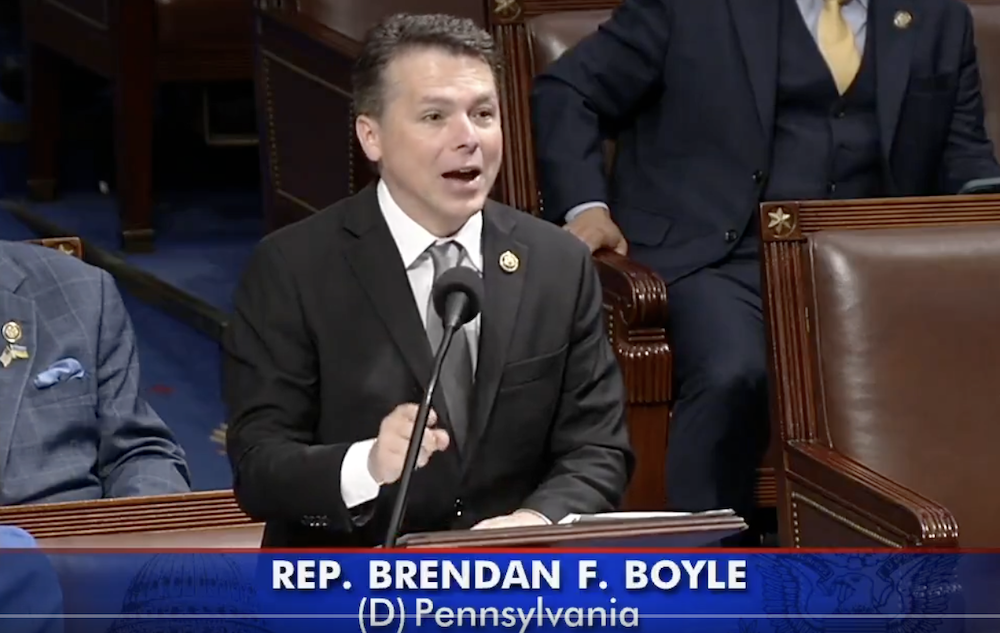
You have heard of the NCAA. But are you familiar with the CFP? How about NIL?
Did you know that Judge Claudia Wilken is one of the most important people in college sports today? Why is that? What is this House v. NCAA case you are hearing so much about?
Remember when college football and collegiate sports was easy. At least four Pennsylvania elected officials do and want to ensure that Penn State, Pitt, and Temple students that participate in college athletics get a fair shake.
Congressman Brendan Boyle (D-02) is concerned that the power structure among the Power 4 conferences in Division I – led by the Big Ten (B1G) and the Southeastern Conferences (SEC) – might be “rigging the system” to reduce postseason football opportunities for those in the Atlantic Coast and Big XII conferences.
Reps. Jesse Topper (R-Bedford/Fulton) and Perry Stambaugh (R-Juniata/Perry) are planning to introduce legislation in the State House that would protect athletes “from poor financial decisions when being paid for name, image, and likeness (NIL) rights.”
And Gov. Josh Shapiro says that NIL, combined with the “transfer portal” which permits students participating in athletics freedom to transfer among schools, is “out of control” and thinks that “real reform” in that space is needed.
The NCAA – or National Collegiate Athletic Association – is currently facing a significant amount of scrutiny under antitrust laws, primarily due to rules restricting athlete compensation and eligibility. The House v. NCAA settlement, which provides for $2.8 billion in back payments to athletes, also allows schools to share a portion of athletic revenue with students with a cap of $20.5 million per school.
Colleges and universities in NCAA Division I – the highest playing level within the 1,100-school association – are scrambling to find ways to pay their students. The largest pile of cash comes from broadcast networks such as Fox, ESPN, Warner Bros. Discovery, and NBC, not only for broadcast rights for regular-season games, but also for the postseason College Football Playoff (CFP).
It was not that long ago when the postseason championships structure in the FBS (Football Bowl Subdivision) consisted of a two-team playoff. Beginning in 2014, the CFP was created and expanded the field to four teams. Last season, the powers-that-be agreed to a 12-team bracket, and in 2026, because things such as this seldom shrink, the field may expand again.
The B1G, of which Penn State is a member institution, and the SEC are holding the best cards in negotiations over the format for 2026 and beyond, as the ACC, which includes Pitt as a member, and Big XII have ceded control to those leagues. That is where Boyle comes in.
College sports officials have spent the last four years seeking federal legislation to regulate the booming market for college athletes without running afoul of federal antitrust restrictions. To the northeast Philadelphia congressman, that causes problems.
Boyle explained his tweet during the PoliticsPA podcast, “Voices of Reason.”
“What I was taking issue with, and what so many others have taken issue with, is what the Big 10 and SEC are proposing to do,” he said. “The roughly 34 or so member institutions in those two conferences would break away from the other 100 colleges and universities and, before the season begins, guarantee themselves eight of these 16 spots (in the 2026 CFP playoff). This would be unprecedented and this would be the first sign of essentially a breakaway within major college sports. It would, and I’m not the first one to use this as others have said, this would be rigging the system literally before the season begins.”
It is a fair question to ask why a Congressman who, supposedly has more important things to concern himself with, is spending time on college football? Especially Boyle, who is the ranking Democrat on the House Budget Committee.
“First I can chew gum and walk at the same time,” he shared. “In the last few weeks I have pulled three all-nighters on the House floor as the budget committee ranking member, the lead Democrat on the budget committee, basically leading the opposition to the reconciliation bill. I was able to do that and still take the 10 seconds to issue the tweet that I did in order to get the Big 10 and SEC’s attention, so that’s number one, these things are not mutually exclusive.
“Number two as to why would a government official and a member of Congress even offer an opinion on these subjects … well, first, anyone who follows my social media knows I’m a passionate Philly sports fan and passionate Notre Dame football fan so I often will opine on sports and express my views.
“But on a more serious point, this is a multi-billion dollar industry,” Boyle continued. “If you were to take the 10-year value of some recent TV contracts, literally over a $1 trillion dollar industry … point to me any other multi-billion dollar or trillion-dollar industry in which government doesn’t have a role in regulating. I think it is appropriate, especially if there’s going to be real harm done to a wide swath of major colleges and universities which, make no mistake about it, would be the impact of the Big 10 and SEC essentially giving the Heisman to the rest of college athletics and separating themselves.”
The House judgment, which has yet to be approved by Wilken, who sits on the 9th District Circuit Court in California, is expected by college administrators any day now. This development has drawn the legislative pen of Topper and Stambaugh, as a lot of money will be flowing to those who have not had it before.
Topper, the state’s House Republican leader, and Stambaugh are introducing legislation that “seeks to minimize student-athlete vulnerabilities and provide stronger institutional frameworks to protect student-athletes’ financial interests. It balances athlete empowerment with reasonable protections.”
Their language will state that institutions of higher education will be required to offer all student-athletes the option to place a portion of their revenue sharing or NIL earnings into trust accounts. The institutions may partner with established financial institutions experienced in educational trust management to minimize administrative overhead. Additionally, institutions will be mandated to provide financial literacy education and resources to their student-athletes.
“NIL is one of the most dynamic and evolving spaces in the national sports market that has become a life-changing positive for many student-athletes and families. As the NIL landscape continues to advance at the federal level, it is appropriate for state legal supplements to ensure student-athletes are protected at a vulnerable time in their lives,” Topper said.
“It’s the wild, wild west in college sports,” said Stambaugh on the current state of college athletics. “It’s probably the biggest change in college sports since the NCAA was created 120 years ago. “This is something Pennsylvania needs to address, and we need to address it right now.”
Shapiro, a huge sports fan, said Wednesday that he has yet to see Topper and Stambaugh’s proposed legislation, but said that he believes that students who participate in college athletics should be able to get paid.
“I think student athletes should be able to have the freedom to pick which college they want to attend and where they want to bring their talents,” the governor said. “So those underlying principles have to be part of this. But what we have to do is make sure there is some ability for all schools to be able to compete in this space, in all sports, and that it not be the situation where we end up losing athletics for both men and women as a result of this process. The NIL can drive a lot of dollars into one particular sport and choke off others, or one particular area and choke off others. I think it is important that we’re in a position where we’re able to really compete.”
There are states that have codified laws that enable their FBS institutions to not be obligated to follow NCAA rules that are deemed anticompetitive. Tennessee signed Senate Bill 536 into law, giving major protection to college sports programs in the state, including the flagship University of Tennessee, a member of the SEC, as they traverse the new, chaotic NIL landscape. It is one of the most “athlete-friendly” NIL laws in the country, as the law will protect UT and others in the state from antitrust lawsuits while taking some shots at the terms within the settlement.
“I don’t want to do anything that limits their ability to compete,” said Shapiro. “What I want to do is see how we can get schools to be lifted up. I know that there’s been a lot of talk about a broader settlement in this space, in the NCAA. I think that’s a piece of it. I’ve talked to Senator (Cory) Booker, who’s been a leader on this at the federal level. I know they’re thinking about something to do, but I certainly wouldn’t be opposed to exploring what we could do here in the Commonwealth.”
Boyle echoed that sentiment while also sounding a warning about a power play by the B1G and the SEC could drastically hurt two Pennsylvania FBS schools.
“The schools that really have to be nervously watching this, frankly, are schools like Pitt and Temple and the other 100 colleges and universities that are outside the Big 10 and SEC,” he said. “Besides the fact their second class status would now be established for the first time ever, this would really limit their ability to make the playoff which means it would limit their ability to earn a pretty significant amount of revenue.”
Boyle also reinforced why this is becoming more of an issue in Washington, D.C.
“A number of colleges and universities – actually all of them basically – and the major conferences have been coming to Congress asking us to pass legislation on these issues,” he said. “So, in my tweet and in other conversations, I have reminded them that if you’re coming to Congress expecting help, and then you’re turning around and rigging the system and trying to exclude most of the other colleges and universities and doing so in a grotesquely patently unfair way, don’t be surprised if you find an unsympathetic audience in Congress.”
When asked what the end game might be, Boyle sided more with the fan than with the schools. And colleagues on the other side of the aisle agree with his line of thinking.
“If I can make one generalization of what I’m looking out for, I want what is in the best interest for the game,” he said, “the students, and the fans whose passion for all of this is what has led to to all of this money. Any conference or conferences who are going to act in a completely selfish monopolistic way or duopolistic way, that is where I draw the line and have a real problem with. The ramifications of that will not just be for 2026. They will be for many years and and decades to come.”
NIL
Arch Manning takes NIL pay cut to boost 2026 Texas Football roster
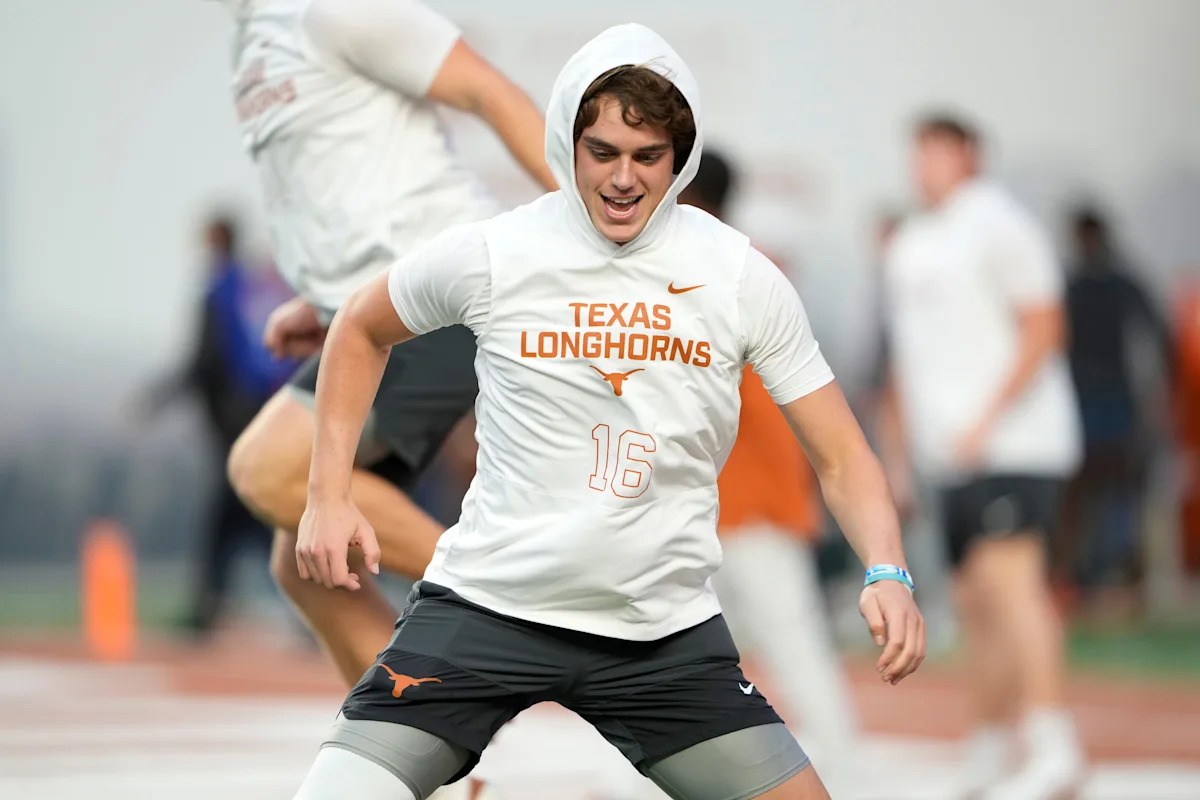
There are plenty of examples of a star in pro sports taking less money in order to help the overall roster. But it isn’t something that’s hit college football yet … until now, thanks to Arch Manning. Manning has asked to take a reduced portion of the Longhorns’ direct payout pool.
Manning’s aim at taking less NIL funds is to help improve the roster around him. Just like Patrick Mahomes, who regularly gives up millions to help the Kansas City Chief’s roster. Tom Brady did it with New England. Dirk Nowitzki, Tim Duncan, LeBron James, Kevin Durant, Jalen Brunson, Aaron Rodgers and Ben Roethlisberger have all helped the rosters around them by taking less.
Advertisement
In the pros, there are salary caps to negotiate. While college has no salary cap (yet), there is a finite amount in the NIL house pool. Texas can only spend what it has available. And while that pool is one of the biggest in the nation, Texas still follows a budget.
No doubt, Manning will be hoping the Texas coaching staff uses some of the freed up football revenue sharing funds on the offensive line. The line struggled in front of Manning all season and certainly inhibited his development early in the season.
Two offensive linemen are gone after the Citrus Bowl and Texas might lose a third. Left tackle Trevor Goosby was named first-team All-SEC is now contemplating going pro. Running back Jadan Baugh from Florida is also on Texas’ radar. The talented RB won’t be cheap.
Of course, it’s not like Manning will starve. The redshirt sophomore has one of the highest NIL valuations in nation. Manning has NIL deals with Red Bull, Panani, Uber and Warby Parker. Manning made north of $3.5 million in NIL deals in 2025, according to the Houston Chronicle.
Advertisement
With a big name that attracts major brands, Manning doesn’t need his big deals supplemented. But most college athletes are paid by the common pool of funds. Manning frees up some of that money for transfers.
This article originally appeared on Longhorns Wire: Manning Pay Cut: Texas QB asks for less NIL money to help boost roster
NIL
Top 5 transfer portal landing spots for TCU quarterback Josh Hoover
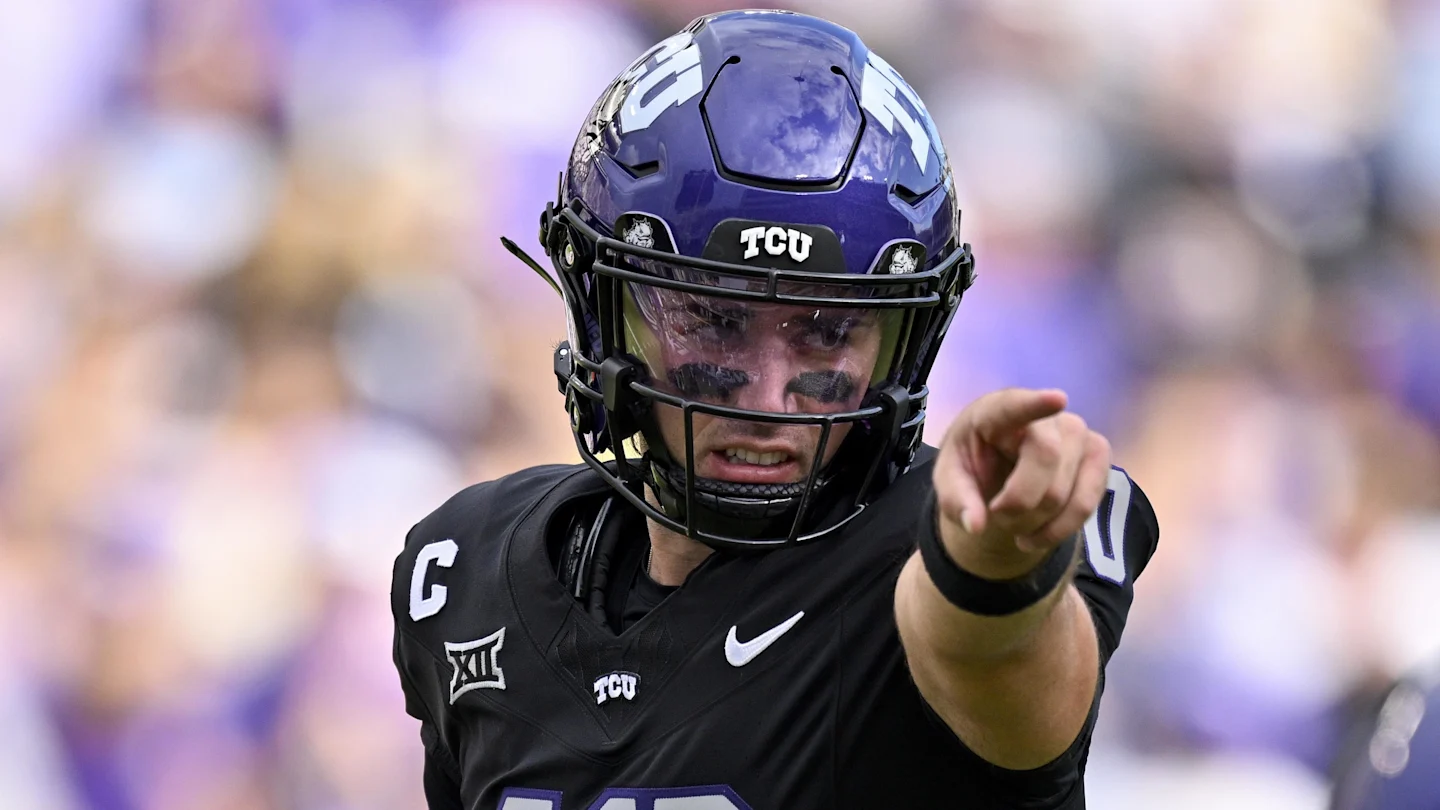
The NCAA Transfer Portal claimed another big name on Thursday night.
TCU star quarterback Josh Hoover has announced he intends to move on from the program. Hoover spent the last four seasons with the Horned Frogs, taking over as the starter midway through the 2023 campaign and putting up big numbers in each of the last two years.
In 36 career games, Hoover has completed 771/1183 passes for 9,629 yards with 71 touchdowns to 33 interceptions. He added eight more scores on the ground. There’s a very real likelihood that Hoover’s the most productive quarterback returning to the sport in 2026.
Hoover ranks in the top 5 in TCU program history in touchdown passes and total offense. He’s expected to be a coveted option in the portal.
Where are five landing spots that make sense for Hoover?
Indiana Hoosiers

Back in the College Football Playoff with a different starter for the second consecutive season, Indiana has put together one of the most impressive runs in the sport since Curt Cignetti took over the program.
The undefeated Hoosiers produced their first Heisman Trophy winner in school history last weekend as star quarterback Fernando Mendoza ran away with the award. Mendoza has another season of eligibility remaining, but is projected to be a top selection in the 2026 NFL Draft.
Indiana has already been linked to Hoover, per CBS Sports’ Chris Hummer.
Miami Hurricanes

Miami has lived in the transfer portal over the past few years, investing plenty of time and money into building a contender for Mario Cristobal. The moves finally worked out in 2025 as a massive financial commitment to secure Carson Beck from Georgia helped power the Hurricanes to the playoffs.
Though the conclusion of the 2024 season was a disappointment, former Miami quarterback Cam Ward was developed into the No. 1 pick in the most recent NFL Draft. Beck will likely get a shot at the professional level as well.
With little proven depth on the roster, it makes sense to bring in another experienced quarterback like Hoover to keep the Hurricanes on the right track. Miami has proven it’s willing to pay up.
Oregon Ducks

Oregon is a known quarterback factory, sending former stars such as Marcus Mariota and Justin Herbert to the NFL. That hasn’t changed since Dan Lanning took over the program in 2022.
The Ducks have had a quarterback drafted in back-to-back years, with Bo Nix going in the first round in 2024 and Dillon Gabriel being selected within the top-100 picks in 2025. Lanning could do it again next April with Dante Moore, who is nearing the end of a career year.
If Moore does leap to the professional level, Hoover would be a solid fit. Nix, Gabriel, and Moore all began their college careers at different schools and later transferred to Oregon, a similar path Hoover is embarking on.
Texas Tech Red Raiders

Suiting up for a playoff contender is pretty cool. Having a chance to win championships and staying home in the process might be even cooler.
Texas Tech has firmly entrenched itself as a program to reckon with in the modern age of the sport. The Red Raiders have plenty of money, and they’ve shown they’re willing to use it to pull in elite talent from the transfer portal and high school ranks.
With Behren Morton exhausting his eligibility following the playoff run, Texas Tech has to decide if it wants to turn the program over to another transfer or a homegrown talent like Will Hammond.
Either way, Hoover is from Texas and he’s already in the state.
Houston Cougars

An outlier among four other programs that have a chance to win it all, Houston is on the come-up. The Cougars haven’t been shy about writing checks, evidenced by the program signing five-star quarterback Keisean Henderson during the Early Signing Period.
Redshirt junior starter Conner Weigman does have one season of eligibility remaining and has stated he intends to return next season. Decisions are quick to change in this era, so never say never.
Would Houston bring in Hoover while Henderson develops for a season? Or should the program stick with Weigman as a veteran leader for Henderson?
Weigman just joined the program as a transfer last year. He was fine, but unspectacular this fall, and an upgrade could help the Cougars break their ceiling.
Read more on College Football HQ
• $45 million college football head coach reportedly offers Lane Kiffin unexpected role
• Paul Finebaum believes one SEC school is sticking by an ‘average’ head coach
• SEC football coach predicts major change after missing College Football Playoff
• Predicting landing spots for the Top 5 college football transfers (Dec. 17)
NIL
South Carolina Upstate visits Youngstown State after Carroll’s 31-point outing

South Carolina Upstate Spartans (8-6) at Youngstown State Penguins (7-5, 2-1 Horizon League)
Youngstown, Ohio; Saturday, 1 p.m. EST
BOTTOM LINE: Youngstown State hosts South Carolina Upstate after Cris Carroll scored 31 points in Youngstown State’s 80-77 overtime loss to the Robert Morris Colonials.
The Penguins are 4-0 on their home court. Youngstown State scores 80.2 points and has outscored opponents by 10.9 points per game.
The Spartans are 2-5 on the road. South Carolina Upstate is fifth in the Big South scoring 79.6 points per game and is shooting 46.2%.
Youngstown State averages 10.4 made 3-pointers per game, 3.8 more made shots than the 6.6 per game South Carolina Upstate gives up. South Carolina Upstate has shot at a 46.2% rate from the field this season, 3.3 percentage points greater than the 42.9% shooting opponents of Youngstown State have averaged.
TOP PERFORMERS: Carroll averages 3.0 made 3-pointers per game for the Penguins, scoring 16.4 points while shooting 48.6% from beyond the arc. Rich Rolf is averaging 10.8 points over the last 10 games.
Mason Bendinger is scoring 16.1 points per game and averaging 3.1 rebounds for the Spartans. Carmelo Adkins is averaging 1.9 made 3-pointers over the last 10 games.
LAST 10 GAMES: Penguins: 6-4, averaging 81.3 points, 33.6 rebounds, 15.2 assists, 9.1 steals and 3.3 blocks per game while shooting 49.6% from the field. Their opponents have averaged 67.7 points per game.
Spartans: 5-5, averaging 75.4 points, 33.5 rebounds, 14.1 assists, 6.1 steals and 5.0 blocks per game while shooting 43.9% from the field. Their opponents have averaged 73.2 points.
___
The Associated Press created this story using technology provided by Data Skrive and data from Sportradar.
NIL
Arch Manning agrees to reduced NIL share to help Texas build roster
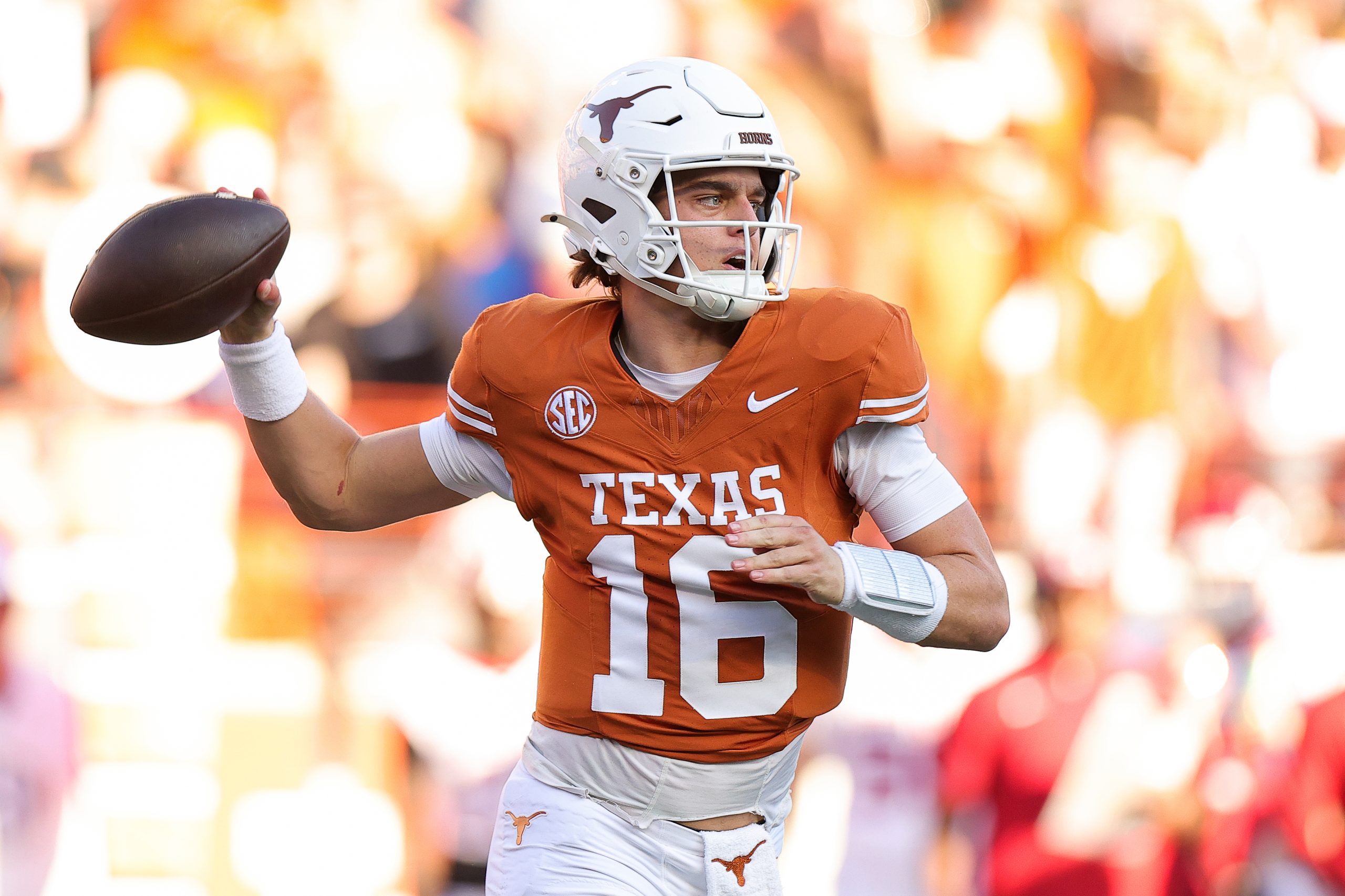
In a college football world where NIL numbers keep climbing, Arch Manning is going the other way.
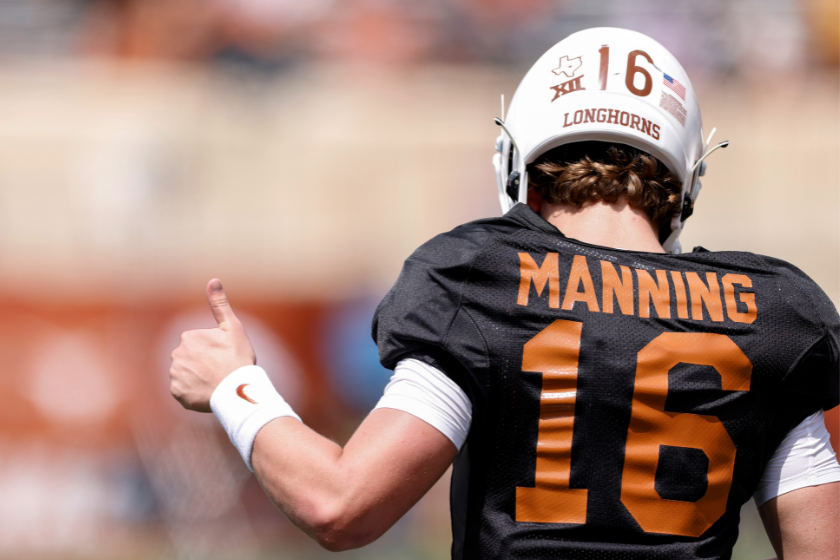
Photo by Tim Warner/Getty Images
The Texas quarterback has agreed to take a reduced share from the Longhorns’ revenue-sharing pool for the 2026 season, according to Justin Wells of Inside Texas. Manning was entitled to a full portion of the program’s revenue cap but opted to scale it back in an effort to give Texas more flexibility to strengthen its roster.
It is a move that stands out in the current landscape. It is also one Manning can afford to make.
Manning remains one of the most marketable players in college football and has a long list of endorsement deals that will continue to pay handsomely. Even with less money coming directly from the school, he is still expected to earn millions in 2026.
This is not the first time he has shown restraint, either. Manning has consistently been selective with his NIL opportunities since arriving in Austin.
The timing matters. The 2026 season is widely expected to be Manning’s last at Texas before he makes the jump to the NFL. From that perspective, the decision is straightforward. He wants the best possible team around him for one more run at a national championship.
Manning has already demonstrated his commitment to the program. He waited his turn behind Quinn Ewers for two seasons without entertaining a transfer and now is willing to sacrifice a portion of his compensation for the good of the roster.
On the field, the growth showed. After a shaky start in 2025, Manning finished with 2,942 passing yards and 24 touchdowns. Texas rebounded from a 3-2 opening to win six of its final seven games, punctuated by a decisive win over Texas A&M.
It is not a common move. It is a very Arch Manning one.
NIL
Miami WR Malachi Toney inks NIL deal with Hellstar

Ahead of the College Football Playoff opener, Malachi Toney added a notable NIL deal. The Miami wide receiver has inked a partnership with apparel company Hellstar.
Toney is Hellstar’s first NIL athlete, the Los Angeles-based brand said in an Instagram post. He became a crucial part of the Hurricanes’ offense during the regular season, helping lead the program to a College Football Playoff appearance as the last team in the field.
SUBSCRIBE to the On3 NIL and Sports Business Newsletter
It was part of a decorated freshman year for Toney, who’s emerging as one of the top young stars in the sport. Repped by NETWORK, he has a $878,000 On3 NIL Valuation.
“We are so proud to announce our first Hellstar Sports College Athlete NIL signing – Malachi Toney,” Hellstar wrote in its announcement. “We had the privilege to coach @malitoney10 while he was apart of our high school 7 on 7 program, so now seeing him shine on the collegiate level we couldn’t be more proud.
“We will continue to do our part to help these young athletes stay on the right path, and shine their light to the rest of the world. From Liberty City to the stars!”
It’s the latest notable NIL deal for Toney amid his freshman season. He also secured a partnership with Leaf Trading Cards in October.
More on Malachi Toney’s freshman season
Through his freshman year at Miami, Malachi Toney emerged as a top target for Carson Beck. He led the Hurricanes with 84 receptions for 970 yards, and his seven touchdown catches put him atop the ACC. Toney also added 89 rushing yards this year, as well as a rushing touchdown against Louisville.
Those numbers helped Toney become an On3 True Freshman All-American this year. In addition, he was a central figure in Miami’s run to the College Football Playoff.
“Toney’s quickness and playmaking instincts make him dangerous after the catch. He accounted for 350 yards after the catch with an average depth of target of 6.6, according to Pro Football Focus,” On3 | Rivals’ Charles Power wrote. “Whether working out of the slot or moving around the formation, the South Florida native has proven nearly impossible to contain. His playmaking ability was pivotal to Miami’s playoff push as he became the focal point of the Hurricanes’ passing attack.
“Given his play as a true freshman, it’s safe to say the Fort Lauderdale American Heritage product will enter next season as one of college football’s premier wide receivers. Toney’s performance as a true freshman is even more impressive considering that he should still be in high school, having reclassified into the 2025 cycle late in the recruiting process.”
NIL
Arch Manning taking pay cut after first Texas season didn’t go as planned
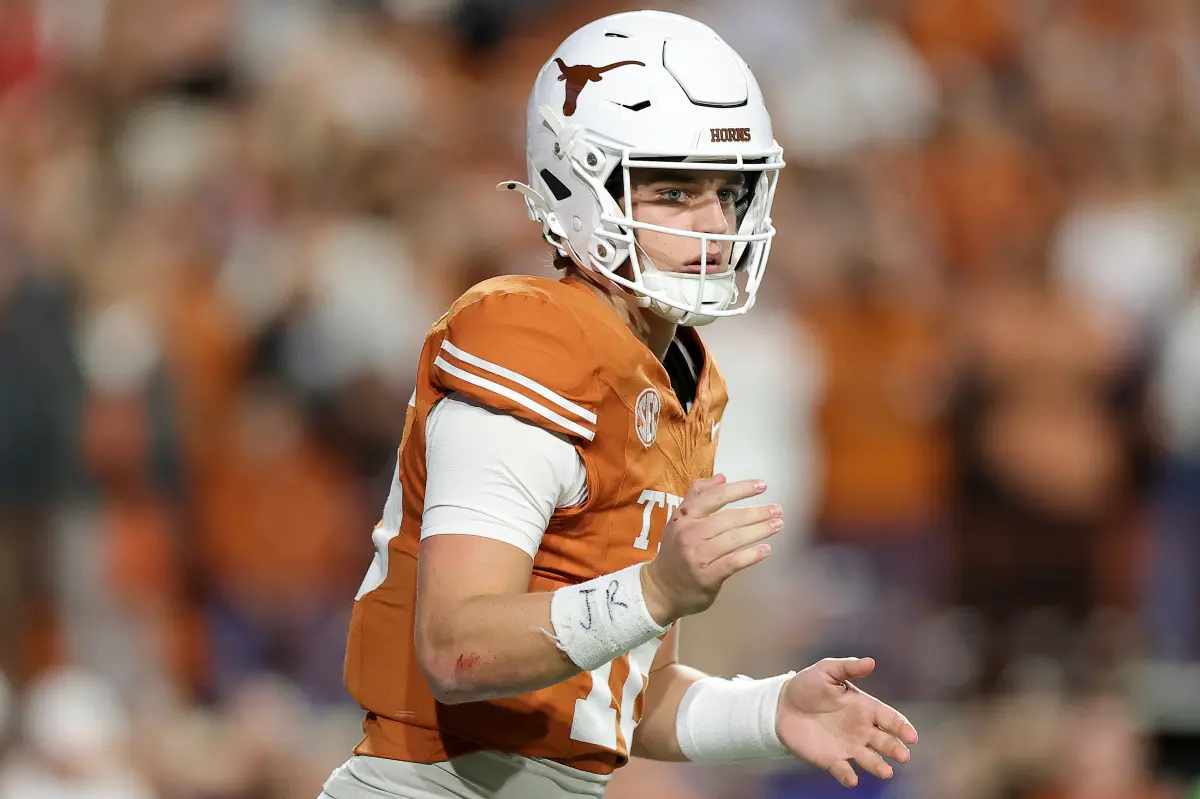
Arch Manning is taking a pay cut.
The Texas quarterback agreed to take a reduced share of the team’s revenue-sharing pool “as part of an effort to help the Longhorn football program do whatever it takes to support a 2026 championship run,” according to On3’s Justin Wells.
The savings “could be used on transfer portal talent or as part of retention efforts” for the Longhorns, per Wells.
This season, athletic programs were capped at $20.5 million in revenue-sharing, although that number is likely to increase next season and beyond.

Manning, the nephew of NFL icons Peyton and Eli Manning and the grandson of legendary quarterback Archie, is one of the most marketable athletes in college sports.
On3 currently gives Manning an NIL valuation of $5.3 million, which leads all student-athletes.
Although he is getting less money from Texas, Manning still holds NIL deals with brands like Red Bull, Uber and EA Sports, among others.
However, Manning sometimes struggled in a season that started with Heisman hype and the Longhorns ranked No. 1 in the nation.
Texas finished the season 9-3 and out of the College Football Playoff, a disappointing midseason loss against a poor Florida team all but ended their chances of being in the 12-team field.
Manning’s season was underwhelming as well, throwing for 2,942 yards with 24 touchdowns and seven interceptions.
The news comes after Manning’s father, Cooper Manning, told ESPN earlier this week that his son would return to the Longhorns in 2026 for his junior season despite previously mulling entering the 2026 NFL Draft.
“Arch is playing football at Texas next year,” Cooper said.
Texas finished No. 13 in the end of season rankings and will be on the sidelines for the College Football Playoff, which kicks off on Friday.
-

 Motorsports1 week ago
Motorsports1 week agoSoundGear Named Entitlement Sponsor of Spears CARS Tour Southwest Opener
-

 NIL3 weeks ago
NIL3 weeks agoBowl Projections: ESPN predicts 12-team College Football Playoff bracket, full bowl slate after Week 14
-

 Motorsports2 weeks ago
Motorsports2 weeks agoDonny Schatz finds new home for 2026, inks full-time deal with CJB Motorsports – InForum
-
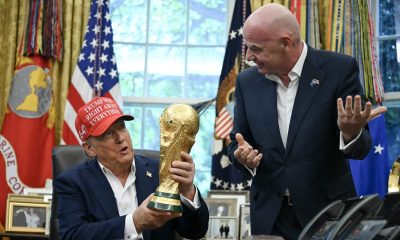
 Rec Sports2 weeks ago
Rec Sports2 weeks agoHow Donald Trump became FIFA’s ‘soccer president’ long before World Cup draw
-
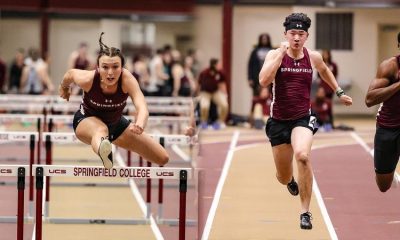
 Sports3 weeks ago
Sports3 weeks agoMen’s and Women’s Track and Field Release 2026 Indoor Schedule with Opener Slated for December 6 at Home
-
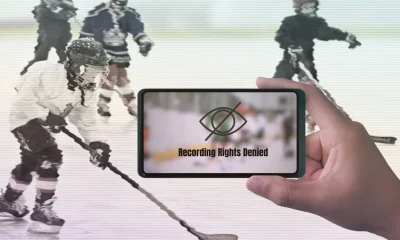
 Rec Sports2 weeks ago
Rec Sports2 weeks agoBlack Bear Revises Recording Policies After Rulebook Language Surfaces via Lever
-

 Motorsports3 weeks ago
Motorsports3 weeks agoMichael Jordan’s fight against NASCAR heads to court, could shake up motorsports
-
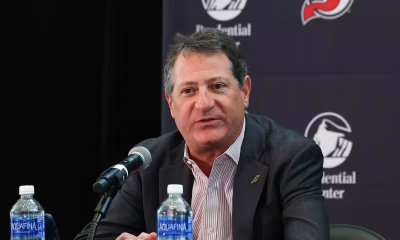
 Rec Sports2 weeks ago
Rec Sports2 weeks agoDavid Blitzer, Harris Blitzer Sports & Entertainment
-
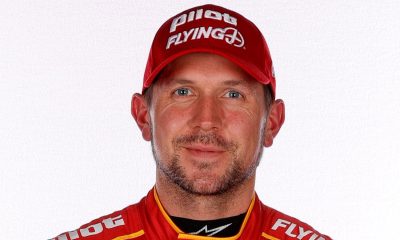
 Motorsports2 weeks ago
Motorsports2 weeks agoJR Motorsports Confirms Death Of NASCAR Veteran Michael Annett At Age 39
-

 Sports1 week ago
Sports1 week ago#11 Volleyball Practices, Then Meets Media Prior to #2 Kentucky Match


































